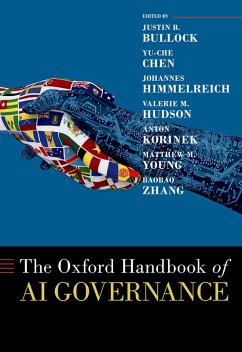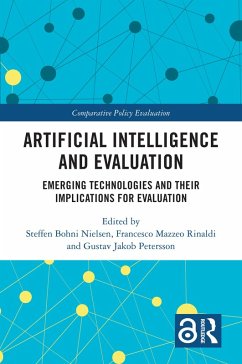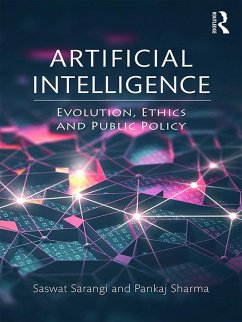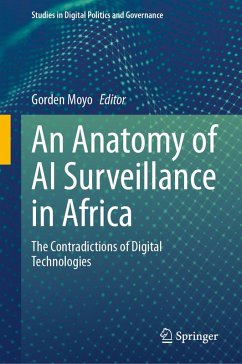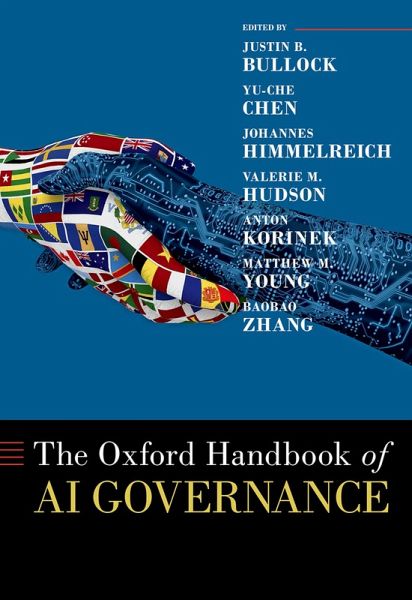
The Oxford Handbook of AI Governance (eBook, PDF)
Versandkostenfrei!
Sofort per Download lieferbar
109,95 €
inkl. MwSt.
Weitere Ausgaben:

PAYBACK Punkte
55 °P sammeln!
As the capabilities of Artificial Intelligence (AI) have increased over recent years, so have the challenges of how to govern its usage. Consequently, prominent stakeholders across academia, government, industry, and civil society have called for states to devise and deploy principles, innovative policies, and best practices to regulate and oversee these increasingly powerful AI tools. Developing a robust AI governance system requires extensive collective efforts throughout the world. It also raises old questions of politics, democracy, and administration, but with the new challenges posed by ...
As the capabilities of Artificial Intelligence (AI) have increased over recent years, so have the challenges of how to govern its usage. Consequently, prominent stakeholders across academia, government, industry, and civil society have called for states to devise and deploy principles, innovative policies, and best practices to regulate and oversee these increasingly powerful AI tools. Developing a robust AI governance system requires extensive collective efforts throughout the world. It also raises old questions of politics, democracy, and administration, but with the new challenges posed by AI's growing influence on markets, governing structures, international relations, healthcare, science, and political activism. The Oxford Handbook of AI Governance delineates the scope of these issues and addresses the key questions of AI governance. Across forty-nine chapters, organized in nine major sections, the Handbook covers the theoretical and ethical foundations of AI governance, different frameworks for developing a governance structure for AI, practical perspectives on AI governance in different policy domains, economic analyses of AI governance, and concrete lessons about the impact of AI governance domestically and internationally. Chapter authors come from a wide set of disciplines, areas of study, and cultural backgrounds, providing a global perspective on AI governance.
Dieser Download kann aus rechtlichen Gründen nur mit Rechnungsadresse in A, B, BG, CY, CZ, D, DK, EW, E, FIN, F, GR, HR, H, IRL, I, LT, L, LR, M, NL, PL, P, R, S, SLO, SK ausgeliefert werden.




